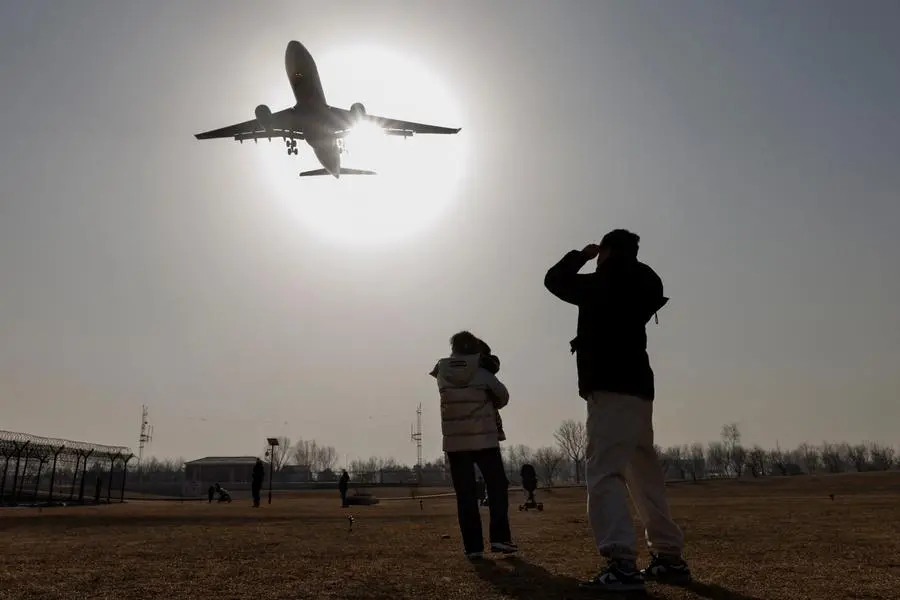PHOTO
LAGOS - Nigerian aviation employees on Monday blocked roads to the domestic terminal of Lagos airport, slowing traffic and threatening to delay flights as they began a two-day strike in protest over working conditions and wages.
The strike is likely to add to problems in a sector that regularly faces jet fuel shortages, which often ground local flights and where international carriers struggle to repatriate revenue from ticket sales due to a shortage of foreign currency.
In the commercial capital Lagos, chanting workers blocked roads to the domestic terminal, creating a traffic jam and forcing passengers to finish their journey on foot. International flights were not affected.
Police and army personnel watched from a distance.
"It is time for us to release aviation workers from the bondage of this imperialist aviation management that we have been having for years," Abdulrasaq Saidu, secretary general of the Association of Nigerian Aviation Professionals said.
Unions representing pilots, engineers, control tower operators and other airport workers say they are protesting against unpaid wages, the failure of the government to implement a minimum wage for the industry and plans to demolish the Lagos offices of some aviation agencies to allow expansion of the airport.
The workers have threatened to strike indefinitely later this month if their grievances are not addressed.
Earlier in the federal capital Abuja, workers blocked the main toll road to the airport, forcing travellers to leave their vehicles and hop onto motorbikes to access the terminal buildings.
But the striking workers later moved and traffic began moving smoothly, a Reuters witness said.
Lagos and Abuja airport management advised travellers to allow extra time to travel to the airport due to the strike.
In northern Kano state, flights were on schedule although aviation workers picketed at the airport.
Nigeria's aviation ministry did not respond to requests for comment on Monday.
(Reporting by Seun Sanni and MacDonald Dzirutwe in Lagos, Abraham Achirga in Abuja and Hamza Ibrahim in Kano; Editing by Sharon Singleton)





















